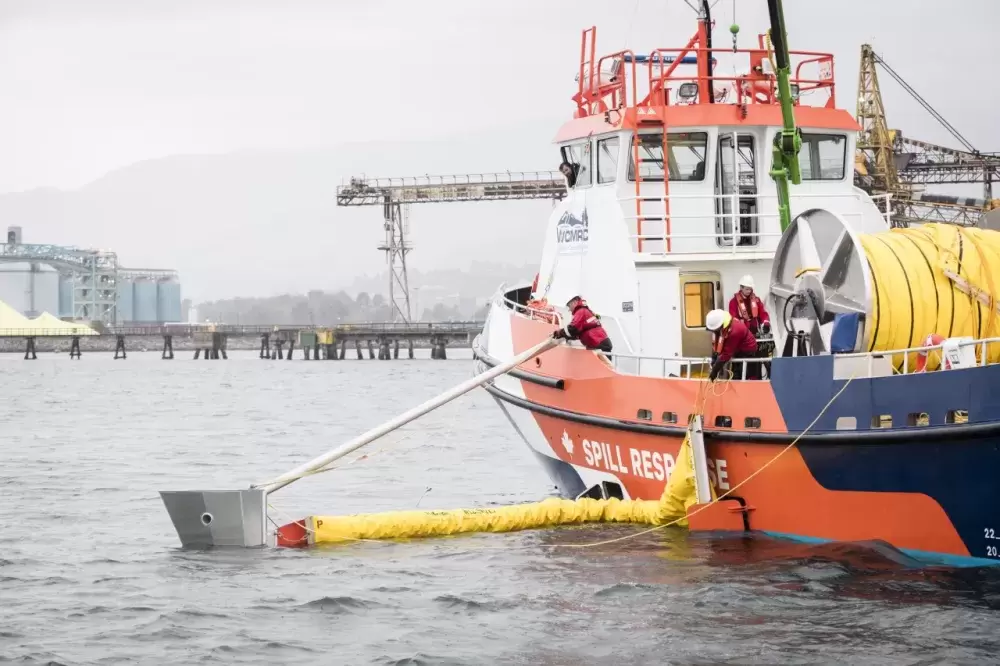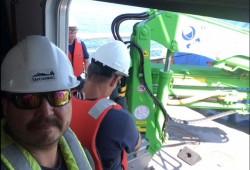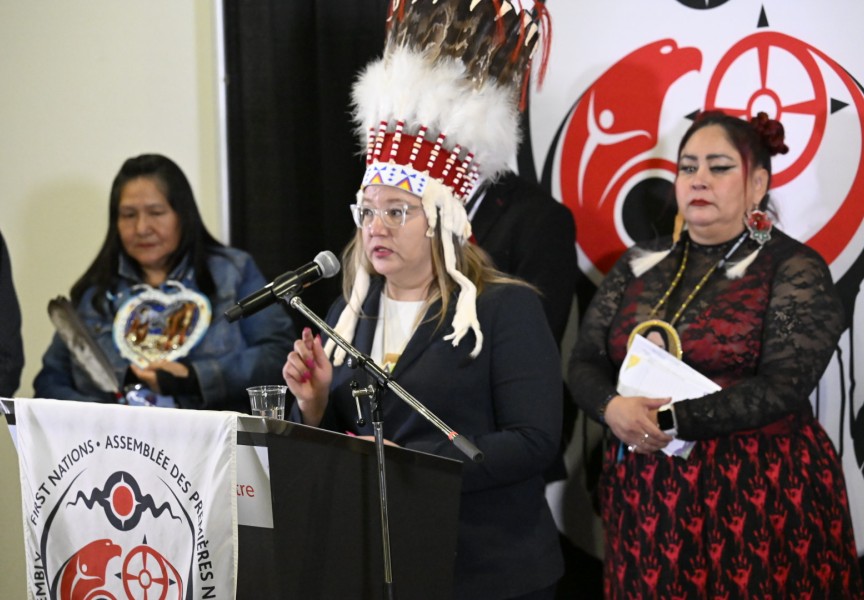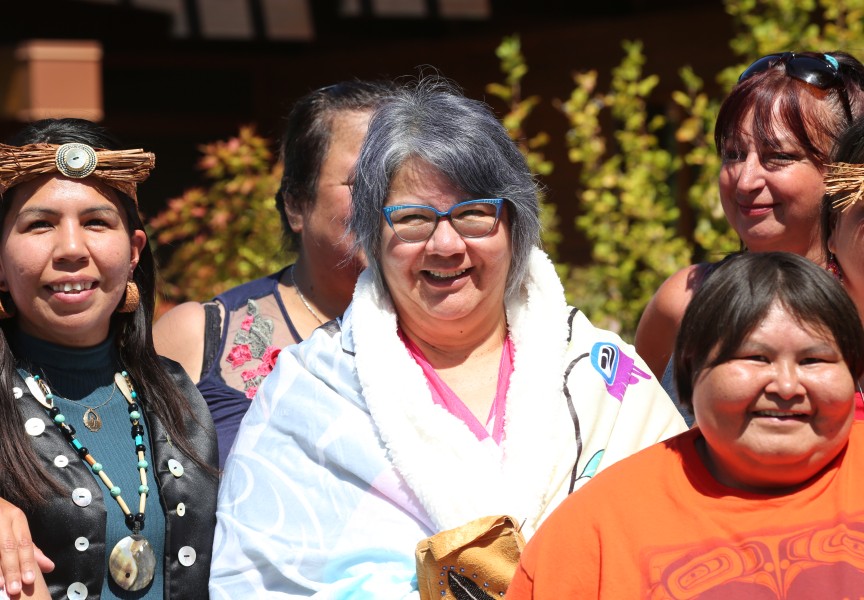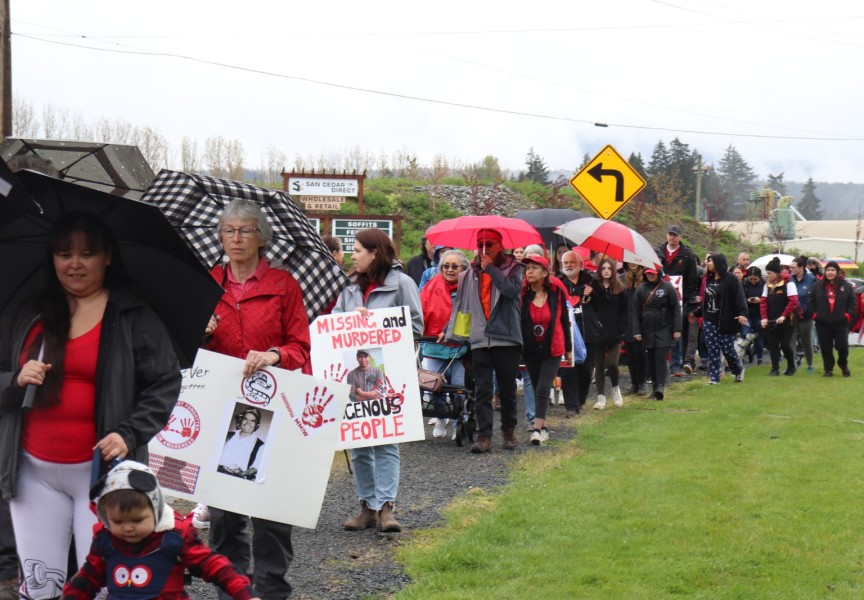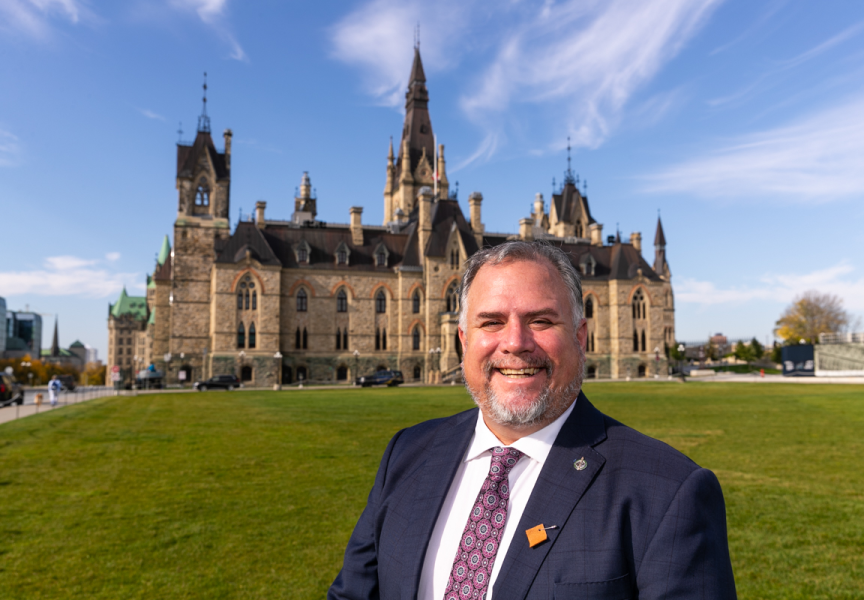Port Alberni will be the site of a new oil spill response base, this coming year.
Plans are already in motion to build the structure, but construction is only in its beginning stages. The purpose of the base will be to respond specifically to the increased tanker traffic, which will come as a result of the Trans Mountain pipeline project—a project that was stalled last year by the courts, then bought by the federal government, which is forging ahead with the plans.
“When they started looking at that pipeline, that was going to increase the amount of tanker traffic in the southern shipping lanes, it’s roughly a seven-fold increase, going from one a week to one a day,” said Michael Lowry, manager of communications for Western Canada Marine Response Corporation (WCMRC). “With the traffic there’s an increase in risk, as well. They approached us to see what we can do to develop more spill response on the west coast.”
According to Lowry, Port Alberni is just one base among many that are being created at the moment—most of which are on Vancouver Island. And they will all contribute to WCMRC’s capacity to respond quickly and effectively in the event that a Trans Mountain tanker springs a leak.
Other locations for new bases will be: on the Fraser River near Vancouver; in Vancouver Harbour; In Nanaimo (this base will trump the current base in Duncan, and act as the new central service location, housing administration, a command post, and a training centre); an offshore vessel stationed in Victoria; and satellite bases in Ucluelet, Beecher Bay, and on the Saanich Peninsula.
The Port Alberni base is one of these satellite bases, and it will work together with forward stationed vessels at the Ucluelet base, to ensure rapid response to spills on the west coast of Vancouver Island.
Both the Sidney and Vancouver Harbour base will be staffed 24/7.
When Trans Mountain asked for WCMRC’s input, the solution they gave was to lower their current maximum response times. In order to do this, more resources and manpower would be needed, so the proposition to build more bases was born, said Lowry.
“Right now, the Government of Canada sets certain standards for response times and Trans Mountain has proposed voluntarily lowering those standards. For example, right now we have a maximum of six hours to respond to spills in Vancouver Harbour, but with Trans Mountain we’re going down to two hours for max response,” said Lowry, explaining that not only does this mean they need new bases, but they will also need more people. Around 120 new people will be hired in total, and they’ll need to ramp up their training programs.
Transport Canada lays out their certification requirements now, but those will change in the case of Trans Mountain, and a third party will have to evaluate WCMRC staff’s success at this.
“And in shipping lanes which go around the southern part of Vancouver Island, we’re going in some places from 72 hours down to six hours,” Lowry added.
The entire project will cost around 150 million dollars, said Lowry, which the Trans Mountain line will eventually pay for it through “tolls.” The tolls are charged per ton of oil loaded into each tanker. The cost of the toll only covers preparedness, but the polluters also always have to pay the cost of the cleanup. Normally the preparedness is covered by a simple membership fee to vessels using Canadian ports, but the nature of the pipeline’s work changed the game.
And despite fears that many people have around the upcoming pipeline project, and the added danger of a spill, Lowry says in the 40 years WCMRC has been active they’ve actually never responded to a single oil tanker spill.
“It’s typically the other vessels that get into trouble, like tugs and barges and stuff like that,” he said.
Richard Harry Watts is a Tseshaht First Nation member working as part of the summer internship program for WCMRC. Watts is hopeful that he’ll secure a position at the Port Alberni base when it opens up. But right now, he’s spent most of his time working at the Nanaimo location, because it’s the only new base that’s already opened up. Port Alberni is still under construction, he said.
“I like the fact that they help out,” said Watts of the WCMRC. “They’re there to help the environment. Like if there’s a spill, they’re there to clean it up. Or if a boat goes down, or a truck on the highway crashes, and it leaks into the river, they’re there to clean it up.”
As a professional fisherman previously, and a man whose earliest childhood memories are of gillnet fishing with family as young as age three, Watts is concerned about the dwindling salmon populations, which Trans Mountain might exacerbate.
He is happy that an organization like WCMRC even exists.
“A lot of the guys here are fishermen, and they’re just as concerned as me about the run…the fish,” he said. “They want to sustain life, too.”

